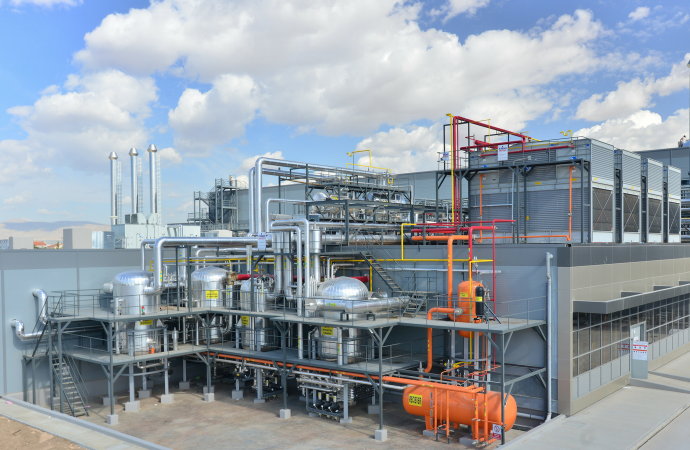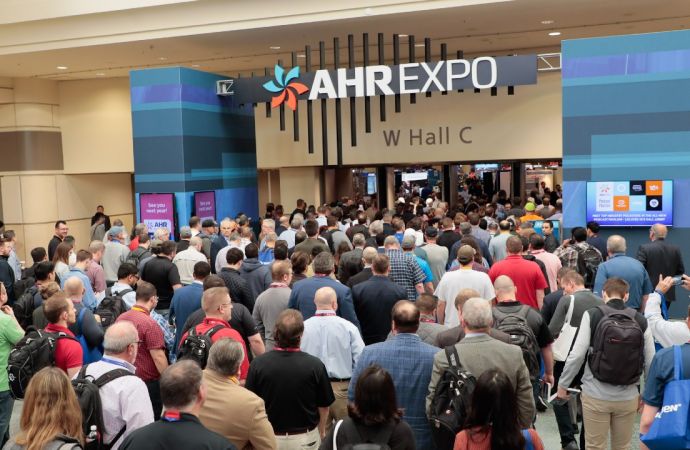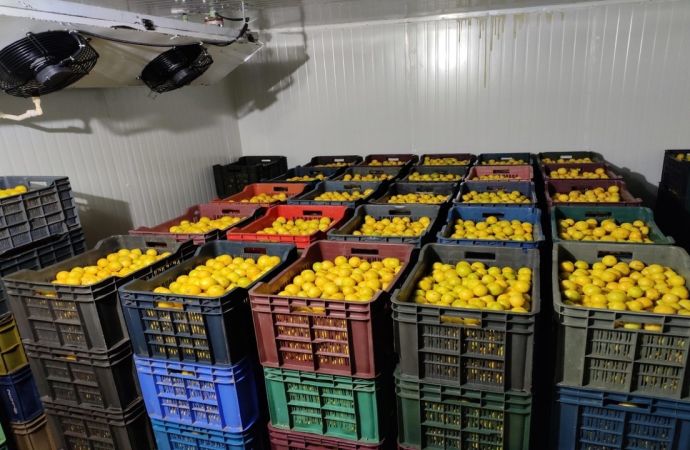Anglo-Dutch consumer goods giant Unilever chose NH3 for the Algida ice cream factory in Konya, Turkey – one of the largest of its kind in Europe and runs on ammonia.

Unilever's Algida ice cream factory in Konya, Turkey
Anglo-Dutch consumer goods giant Unilever reports efficiency gains from the ammonia system at its new Algida – known as Wall’s in some countries – ice cream factory in Konya, Turkey.
Opened in 2014, the ice cream factory is one of the largest of its kind in Europe and has a production capacity of 400,000,000 litres/year. Frigo Mekanik, a Turkish company established in 1989, installed the refrigeration system in Konya after having also fitted an ammonia system at Unilever’s first Algida factory in Turkey (in Tekirdag, built in 1990).
Energy efficiency is particularly important for ice cream production, which is an energy-intensive process requiring temperatures as low as -45°C.
The ice cream production process requires several stages of cooling. The ammonia system is first used to part-freeze the ice cream in continuous freezers at a temperature of -35°C. Afterwards the ice cream is hardened in -45°C freezers. It is subsequently stored at a temperature of -25°C.
Algida is highly satisfied with the result. They appreciate the high efficiency, reliability and easy operation of the system."
- Veysel Durlu, Frigo Mekanik
Around 100 people work at the facility, which is divided into two parts: production and cold storage. Each section boasts an independent refrigeration system based on ammonia. Frigo Mekanik built and installed the systems, which use Mayekawa compressors, Baltimore Aircoil Company condensers, Güntner evaporators and Danfoss controllers.
The system recovers heat from two points: from the ammonia gas discharge, and from the compressors. The direct ammonia systems produce process cooling via glycol circuits. Evaporative condensers ensure no extreme pressures occur during high summer temperatures.
“Algida is highly satisfied with the result,” Veysel Durlu, head engineer and technical coordinator at Frigo Mekanik, told ammonia21.com. “They appreciate the high efficiency, reliability and easy operation of the system.”
“The company Unilever of course has a lot of experience and knowledge regarding refrigeration,” Durlu said. “Although HFC central refrigeration systems are possible in principle, [their] operational costs would be too high. Direct ammonia or CO2/ammonia subcritical cascade systems are the only alternatives for such low-temperature plants,” he added.
Related stories




